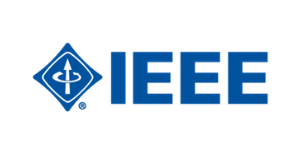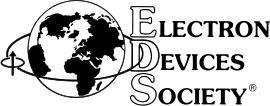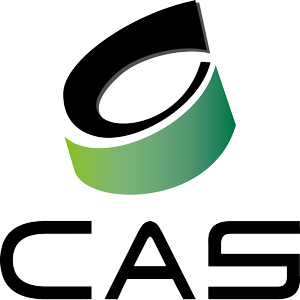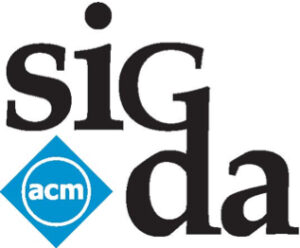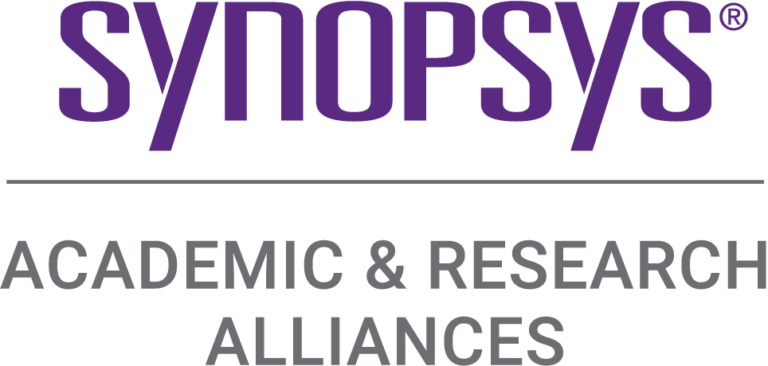INTERNATIONAL CONFERENCE ON COMPUTER AIDED DESIGN CONFERENCE BY LAWS
1. THE PURPOSE OF THE CONFERENCE
The objective of the International Conference on Computer-Aided Design (ICCAD) is to provide education and technical enrichment for Computer-Aided Design (CAD) professionals of electrical and electronics engineering and promote advancement of the state-of-the-art in CAD and electronic design technology. ICCAD is to provide a forum for technical discussions and a platform for examining new ideas and research topics. ICCAD will also provide a forum for technical evaluation of CAD vendor’s products in a way that does not detract from the technical program and research emphasis of ICCAD topics.
2. SPONSORSHIP OF ICCAD
ICCAD is co-sponsored by the Council on Electronic Design Automation (CEDA) of the Institute of Electrical and Electronics Engineers (IEEE), and the Special Interest Group on Design Automation (SIGDA) of the Association for Computing Machinery (ACM), which are called the “sponsoring societies”, and is held in cooperation with the IEEE Electron Device Society. Financial responsibility is shared as follows (from 2013 onwards): IEEE CEDA (46.7%), IEEE CAS (20%), and the ACM SIGDA (33.3%). The copyright to the proceedings will be held by both IEEE CEDA and ACM SIGDA as follows: IEEE CEDA holding two out of every three years, and ACM SIGDA holding copyright once for every three years. Vendors may be allowed to sponsor events in the conference, but are not financially responsible for ICCAD.
3. CONFERENCE ORGANIZATION
An Executive Committee administers ICCAD. A Technical Program Committee is organized for selecting papers and arranging the technical program of the conference.
4. THE STRUCTURE OF THE CONFERENCE
ICCAD is held annually in November before Thanksgiving or in the last ten days of October. The conference will be three to four days in length. Three consecutive days will be used for presentation of technical papers, embedded tutorials, half- and full-day tutorials, and optionally keynote addresses and panel discussions. All papers presented will be selected from those submitted for peer review. The Technical Program Committee will select the papers and then arrange them into sessions. Embedded tutorials or invited sessions on advanced topics are invited by the Executive Committee from submitted or solicited proposals. The panel discussions are organized by the Executive Committee. The Executive Committee will have the final approval for all aspects of the conference. On the remaining fourth day, either at the beginning or the end of the conference, paid tutorials by invited experts speakers and/or co-located workshops organized by recognized experts will be held. The workshops are technically independent of ICCAD, having their own leadership and technical program committees, but will be allowed to leverage the organization infrastructure of the conference.
5. CONFERENCE COMMITTEES AND OFFICERS
5.1 Executive Committee
The Executive Committee consists of all the Officers of the Conference, the International Representatives, and the Sponsoring Society Representatives. The Executive Committee shall decide all issues relevant to policy and budget. An Executive Committee Meeting may be called by the Conference Chairperson or the Past Conference Chairperson. The Executive Committee of any particular ICCAD edition will have a minimum of three meetings: one after the conclusion of the previous edition, one after the Technical Program Committee meeting and one at the conference itself. The Executive Committee may hold meeting during the intervening periods as needs arise, including through electronic means such as conference calls.
The Officers of the conference are the Past Conference Chair, the Conference Chair, the Technical Program Chair, the Technical Program Vice-Chair, and the Special Session Chair. These also form the Conference Oversight Committee outlined below. The Executive Committee may retain a professional Conference Manager to assist the Executive Committee in its duties as described below. The Conference Chairperson shall be obligated to monitor the Conference Manager and notify the sponsoring societies if any serious problem arises. The Executive Committee may appoint other non-voting chair positions, such as a Publicity Chair, to assist the Executive Committee with special duties.
5.2 Conference Oversight Committee and Appointment of the Executive Committee
A Conference Oversight Committee will consist of the Past Conference Chairperson, the Conference Chairperson, the Technical Program Chairperson, the Technical Program Vice-Chairperson, and the Special Session Chairperson. The Oversight Committee will appoint and replace the Officers of the Conference and International Representatives, with the guidance of the Executive Committee.
All appointments and replacements must be unanimously approved by the Conference Oversight Committee, except for Sponsoring Society Representatives. The Oversight Committee must comply with the Bylaws and operating procedures of the sponsoring societies.
Each Officer of the Conference and International Representative will generally be appointed for a two year term. The terms start at the start of any new conference edition, i.e., immediately after finishing the previous edition.
No person shall retain the same Officer Position for more than two years, or remain on the Executive Committee for more than five consecutive years, unless that person moves into the five-year Chairperson progression after, at most, two consecutive years. Service as an International Representative or as a Sponsoring Society Representative does not count towards the above service years.
Each year, the Oversight Committee shall rotate individuals into the Executive Committee (as needed to complete the Executive Committee) who have not served on the Committee for at least three years.
The Oversight Committee shall strive to maintain a balanced Executive Committee with representation from multiple geographical locations, demographics (including gender and race), and from industry and academia. It is recommended that, when possible, at least one member of the Oversight Committee be appointed from Europe or Asia.
There will be a special progression for members of the Oversight Committee: Past Conference Chairperson, Conference Chairperson, Technical Program Chairperson, Technical Program Vice-Chairperson, and Special Session Chairperson. Anyone who becomes a Technical Program Vice-chairperson must commit themselves to a five-year obligation as follows: they must serve during the third year as Technical Program Chairperson, the fourth year as Conference Chairperson, and the fifth year as Past Conference Chairperson. If an individual cannot complete the five-year commitment, the Oversight Committee shall accelerate the rotation of Officers and replace the missing positions as required.
Any member of the Conference Oversight Committee may call a meeting of that committee, including through electronic means. The Executive Committee may remove any Officer of the Conference or International Representative at a meeting where 75% of the voting Executive Committee members are present and where 75% of those present vote to remove the Officer.
5.3 Technical Program Committee
The Conference Technical Program Committee will select the papers to be presented at the Conference. The Committee will be comprised of at least 80 knowledgeable CAD-technologists that have demonstrated their competence through technical publications and professional involvement. The members of this committee shall be balanced between industrial and academic representation. The members of this committee shall be geographically and demographically distributed representing the research community at large, and shall generally represent different organizations. The Technical Program Chairperson shall select the individuals that will serve on the committee with the advice and consent of the Conference Chairperson. Final vote of the Executive Committee shall confirm the composition of the Technical Program Committee. Within an interval of 6 years, an individual can only serve for a maximum of three years on the Technical Program Committee. The time spent by any individual as Technical Program Chairperson or Technical Program Vice-Chairperson does not count towards this maximum. If possible, the other members of the Oversight Committee will not serve simultaneously as members of the Technical Program Committee.
The Technical Program Committee will meet preferably in June before DAC. The Technical Program Committee shall select papers to be presented, and shall recommend to the Executive Committee how these papers should be collected into sessions. Further details on this process are found in Section 6.3.
5.4 Award Committees
There are three Award Committees: a) One Award Committee shall propose the Best Paper out of the papers regularly submitted to and accepted at ICCAD and award it in the category “Front-End” (called the “William J. McCalla Best Paper Award”), b) One Award Committee shall propose the Best Paper out of the papers regularly submitted to and accepted at ICCAD and award it in the category “Back-End” (called the “William J. McCalla Best Paper Award”). A small number (typically not exceeding three per committee) out of these papers may be marked as “Best Paper Candidate” in the proceedings and/or the program booklet. In addition, c) an Award Committee proposes a Most Influential Best Paper Award (“William J. McCalla 10-Year Most Influential Best Paper Award”) selected from a pole of regularly submitted and accepted ICCAD papers dating ten and nine years back. The members of the three Award Committees are jointly selected by the Technical Program Chairperson and the Technical Vice-Chairperson with final vote from the Executive Committee to confirm the composition. The Technical Program Vice-Chairperson reports the Award Committees decision to the Executive Committee with a report that explains the selection process and the rationale of the decision.
5.5 International Representatives
Representatives shall be appointed from the areas Asia/South Pacific and Europe. They have to represent and publicize the conference within their communities. International Representatives will generally be appointed for a three-year term.
5.6 Sponsoring Society Representatives
Representatives may be appointed by their respective sponsoring societies to represent those societies on the Executive Committee, and are not subject to the normal Executive Committee term limits. Currently there are two voting Sponsoring Society Representatives: one representing CEDA, one representing the sponsoring IEEE societies and one representing ACM SIGDA.
6. THE OFFICERS OF ICCAD AND THEIR DUTIES
6.1 Conference Chairperson
The Conference Chairperson will supervise the administration of ICCAD. The Chairperson shall preside at all Executive Committee Meetings and Oversight Committee Meetings. The Conference Chairperson shall be obligated to monitor the individual officers of the Conference. The Chairperson shall notify the Executive Committee if serious problems develop and the sponsoring societies if the financial position or the professional integrity of the conference is threatened. The Conference Chairperson may represent ICCAD at meetings of the sponsoring societies and other organizations. The Conference Chairperson will be responsible for all the individuals directly hired by ICCAD, including the Conference Manager. Furthermore, the Conference Chairperson is responsible for financial control of ICCAD and the registration process. The Chairperson shall be obligated to monitor the Conference Manager in registration matters and notify the Executive Committee if problems develop.
The Conference Chairperson shall be responsible for any keynote speakers that will present during ICCAD. The Conference Chairperson will select the topics and speakers for those presentations with the advice and consent of the Executive Committee, by balancing topics and representation from industry, academia, geographically, and demographically so as the speakers provide a representative sample of the community at large. This Chairperson shall be the moderator for or oversee each keynote session and may be assisted in the mechanics of this process by the Conference Manager.
The Conference Chairperson shall be responsible for preparing the budget and TMRF, as well as monitoring of the actual financials versus the budget and the final closing of the books for the ICCAD conference. In these activities the Conference Chairperson will be assisted by the ICCAD Conference Manager. The budget must be prepared for approval at the Executive Committee that is organized one year prior to the conference. The TMRF must be submitted to the sponsoring societies for their approval right after this meeting. The books must be closed within 6 months past the conference.
In addition, the Chairperson must notify the sponsoring societies if the financial position of the conference is threatened. The conference Chairperson must approve in advance any income or expenditure that substantially deviates from the Budget. The Conference Chairperson must give prior written authorization for any individual expenditure in excess of $10,000. This written authorization is also required whenever the total expenditures to any one source exceed $10,000
6.2 Past Conference Chairperson
The Past Conference Chairperson will assist the Conference Chairperson with the administration of ICCAD, and will temporarily assume the duties of Conference Chairperson whenever the Conference Chairperson is unavailable. The Past Chairperson shall also assume special projects, as assigned by the Conference Executive Committee, which are concerned with the general welfare of ICCAD. The Past Conference Chairperson will also be responsible for selecting travel grant recipients. Finally, the Past Conference Chairperson shall be responsible for the maintenance of these Bylaws and the ICCAD Policies, and at the beginning of the committee-year, shall distribute a copy of these Bylaws and the ICCAD Policies to each Member of the Executive Committee.
6.3 Technical Program Chairperson
The Technical Program Chairperson is responsible for the Technical Program and the Technical Program Committee. In this capacity, the Technical Program Chairperson shall insure the technical excellence of the conference and insure that the paper selection process is impartial. Technical Program Chairperson responsibilities include: update of the Call for Papers; selection of members of the Technical Program Committee; supervision of the distribution of papers for review; leading the Technical Program Committee Meeting; leading the effort of arranging papers into sessions; all communications with the authors; reminding the authors of important dates and standards; and supervision of the technical portion at the Conference. The Technical Program Chairperson will assign the Session Moderators for the Conference with the advice of the Technical Program Committee. The Technical Program Chairperson may be assisted in the mechanics of this process by the Conference Manager, and is responsible for notifying the Conference Chairperson if serious problems develop. The Technical Program Chairperson shall be responsible for the publication of the Call for Papers, the Advance Program, and the Digest of Technical Papers. The Technical Program Chairperson may be assisted in the mechanics of this process by the Conference Manager, and is responsible for notifying the Conference Chairperson if serious problems develop.
6.4 Technical Program Vice-Chairperson
The Technical Program Vice-Chair shall be responsible for any panels that will be presented during ICCAD. The Vice-Chairperson will select the topics for those sessions with the advice and consent of the Technical Program Committee and the Executive Committee. This Chairperson shall select a moderator for each session and working with this moderator, shall select the other panel members. The Vice-Chairperson will supervise this event at the conference, and may be assisted in the mechanics of this process by the Conference Manager, and is responsible for notifying the Conference Chairperson if serious problems develop. The Vice-Chairperson will attend the technical program committee meeting and assist the Technical Program Chairperson. The Vice-Chairperson will be responsible for the advertisement of ICCAD in appropriate professional journals, in magazines, and on the web. The Vice-Chairperson will develop an advertising campaign with the advice and consent of the Conference Chairperson. The duties will include supervising the development of individual advertisement, interfacing with the publishers, and assuring that the campaign is professionally executed. The Vice-Chairperson may be assisted in the mechanics of this process by the Conference Manager, and is responsible for notifying the Conference Chairperson if serious problems develop. The Technical Program Vice-Chairperson will be responsible for the Awards of ICCAD. The Vice-Chairperson will be responsible for assigning audio/visual equipment and other provisions needed by ICCAD. The Vice-Chairperson may be assisted in the mechanics of this process by the Conference Manager, and is responsible for notifying the Conference Chairperson if serious problems develop. The Vice-Chairperson shall attend the speakers’ breakfast on the first three days of ICCAD, and give a brief presentation to the speakers with information about audio/visual equipment and any other details to aid the speakers in giving effective presentations.
6.5 Special Session Chairperson
The Special Session Chairperson is soliciting Special Sessions and Tutorials by active advertisement. Presenters of Special Session and Tutorial talks should be recognized experts. It should be the goal to have a parallel track consisting solely of Special Sessions and Tutorial Sessions. The Special Session Chairperson appoints a committee that selects the special sessions and tutorials to be included in the program. Final approval for the selected Special Sessions and Tutorials is required from the ICCAD EC. Special Session and Tutorial presenters have the choice to have a paper included in the proceedings. These papers must be specified as “Invited Special Session Paper” or “Invited Tutorial Paper” prominently below the title of the paper. The Special Session Chairperson is responsible for the whole process from soliciting, selecting and publishing Special Sessions and Tutorials and must report the progress to the other members of the Oversight Committee.
6.6 Other Chairpersons
The Executive Committee may assign additional chairpersons with specific responsibilities, if necessary.
6.7 Conference Manager
The Conference Manager is responsible for assisting the Officers of the Conference in the mechanics of performing their duties as described above, and shall notify the Conference Chairperson if serious problems develop. Additionally, the Conference Manager is responsible for local arrangements as directed by the Executive Committee. The Conference Manager is responsible for selecting and concluding agreements of the conference site and the hotels in which attendees will be housed during the Conference. The Conference Manager is to assure smooth operations at the time of the Conference, which includes scheduling all events, assigning locations for each activity, assigning CAD Vendors to the available locations, establishing standards for the CAD vendors, and monitoring the vendor compliance to those standards.
7. ICCAD BYLAWS MODIFICATION
Any modification to these Bylaws may be considered only after open discussion at a meeting of the Executive Committee. Any modification must be approved by at least 75% of the voting members of the Executive Committee.
8. ELECTRONIC MEETINGS
Any Executive Committee meeting or any Conference Oversight Committee meeting may be held electronically at the discretion of the Conference Chairperson.


